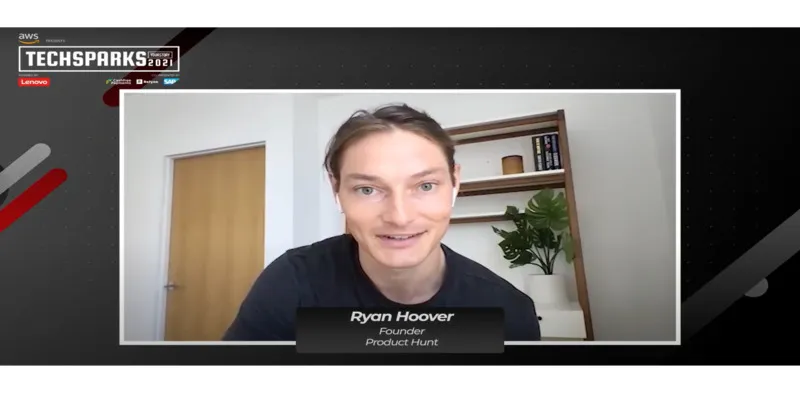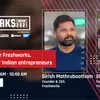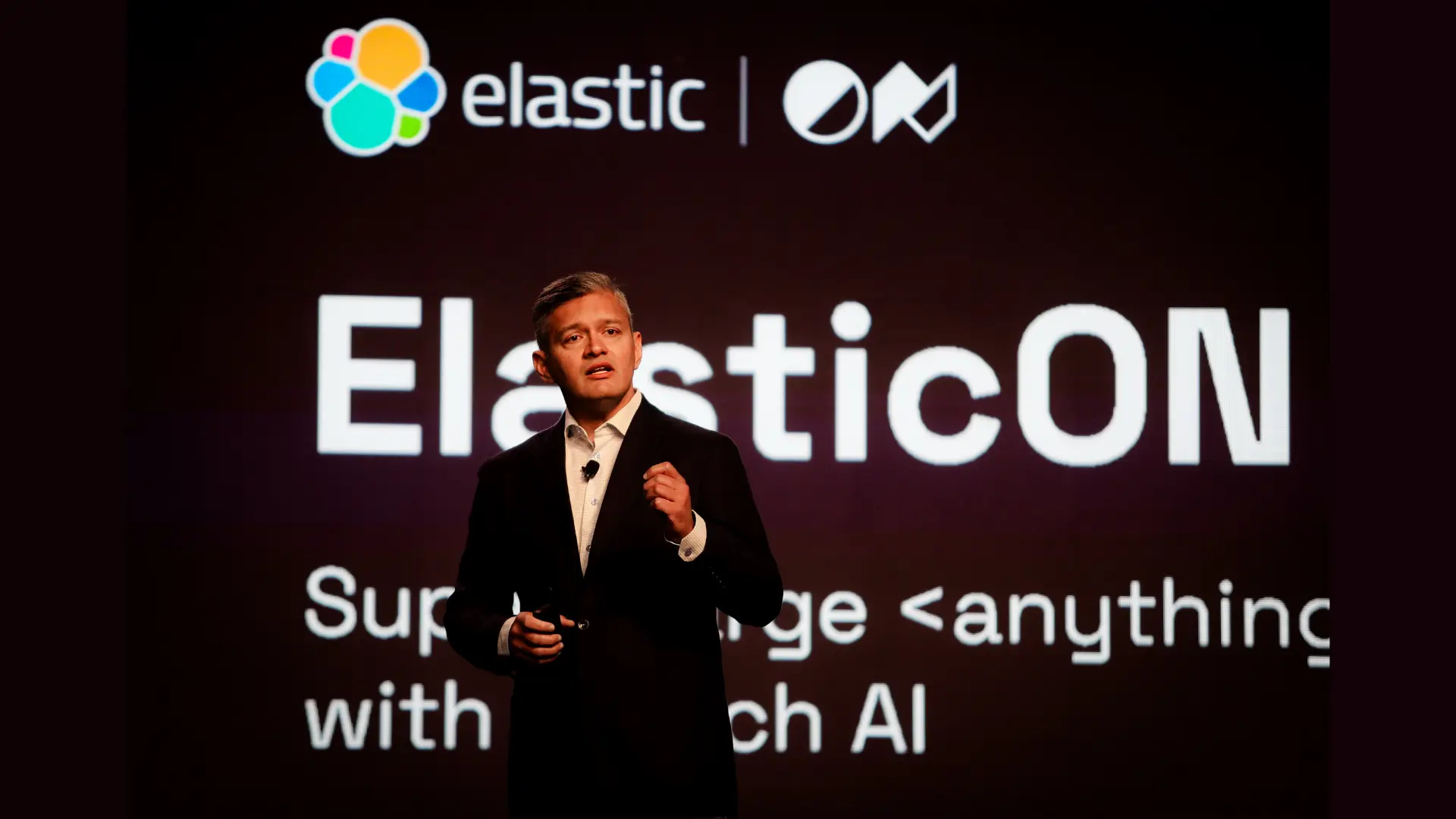Being vulnerable and using existential crisis to your advantage: Product Hunt's Ryan Hoover at TechSparks 2021
As someone who’s sat on both sides of the table — as a founder, and now, an investor — Ryan Hoover has a unique perspective for entrepreneurs. At TechSparks 2021, he talks about things he wishes he had done while building Product Hunt.
Naina Sood

Tuesday October 26, 2021 , 5 min Read
Human beings are conditioned to believe that asking for help is a sign of weakness — “survival of the fittest” and all that — but Founder Ryan Hoover believes not asking for help was one of the biggest mistakes he made when he was building his startup.
In a freewheeling conversation at TechSparks 2021, the entrepreneur-turned-investors said he regrets not reaching out to his investors and mentors more for help, adding if he had, he could have avoided some of the mistakes he made building Product Hunt.
“As I reflect back on the years I spent building the product, I’m like “shoot, I should have really been more vulnerable and asked for more help. I see this now as an investor too — a lot of entrepreneurs don’t ask for help,” he said.
With or without help though, Ryan has achieved what very few entrepreneurs can claim — building a product or a platform out of sheer passion, and then successfully exiting via an acquisition.
These days, as an investor at The Weekend Fund, Ryan is particularly excited about the Indian startup ecosystem, and is on the lookout to bet on more firms.
“We're going to see a lot more entrepreneurs and founders come out of India. There are already a ton, but there's going to be more and more as we see more of these IPOs and success stories come about,” he said.
Founded by Ryan Hoover, Vedika Jain, and Maryam Mazraei, The Weekend Fund’s overall portfolio is dominated by US-based companies, but around 20 percent of it is in India, Europe, Canada, and Brazil. Its investments in India include six startups so far, including and .

Ryan Hoover in conversation with Shradha Sharma, Founder & CEO, YourStory, at TechSparks 2021
Crypto ruling the roost
As a broad investor, he’s not restricted to any particular category for investment, and is always on the lookout for “crazy” ideas, according to Ryan.
Having said that, crypto or blockchain has piqued the investor’s interest.
“We are pretty broad investors. I mean, one area that we're spending more and more time in is blockchain or crypto, whatever you want to title it. Fundamentally, the internet is being reshaped and also the way the communities form. And the way they are incentivised is also changing with both cultural and technology shifts. So, we're doing a lot more there. And I find it really exciting for the future,” said Ryan.
Excitement and curiosity are two important driving factors for Ryan when it comes to investing, helping founders build, and grow. It was what got him started in the first place — his curiosity around the sort of tech products that were trending in not just the US, but other regions around the world, like Japan, India, etc.
“I was always playing around with news apps and products, downloading them from other country app stores, just out of curiosity to see what is popular in other regions. So part of my motivation was just to learn and get inspired and see what people were building,” the founder said.

Important to cry
Ryan likens the journey of a founder to a sine wave — there are extreme ups and extreme downs. When the highs come around, it’s fun and motivating; but when the lows roll around, it’s depressing.
The important thing to remember during the lows is to cry, he said.
“You have to cry as a founder. If you haven’t cried as a founder at some point, I’m like ‘are you a robot’...I cried many times too, going through really difficult challenges from team stuff to raising funds to “this isn’t working and I don’t know what to do”. Your team relies on you to have all the answers so it does get hard sometimes,” he quipped.
When faced with an existential crisis though, learning and becoming more curious about things is usually what has worked for him, he revealed.
It was during one of those phases when he was contemplating the next best course of action in terms of the startup’s future, that AngelList set its sight on Product Hunt.
The startup had previously raised about $7 million in venture funding from Andreessen Horowitz and a smattering of seed investors, including AngelList CEO Naval Ravikant.
For Ryan, Product Hunt and AngelList had mutual synergies and fit well together — so it made more sense to combine the companies and grow together, rather than going head-to-head.
“I have always admired AngelList. I used to browse AngelList like a nerd, looking for companies, not as an investor but to discover what people are building. Therefore, we had a similar mission to support entrepreneurs, founders, creators, and the tech ecosystem broadly, but we came in with different perspectives and value propositions. It felt like a perfect fit,” he said.
“It’s like when you get married — you probably want some similarities, but you probably don’t want to marry someone exactly like you.”
Edited by Anju Narayanan








